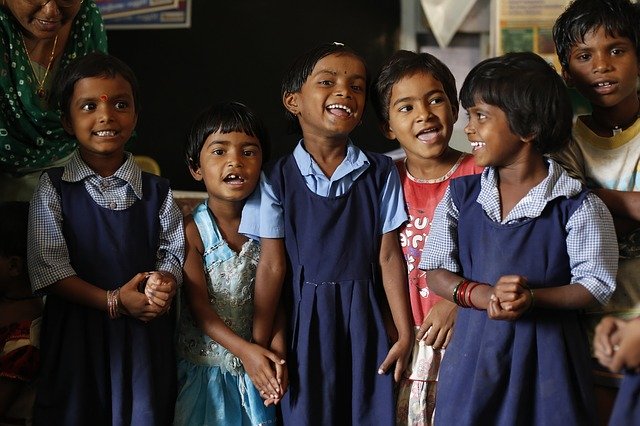3 NGOs Educating Children in India

The new coronavirus pandemic has imposed previously unforeseen obstacles on education systems across the globe. This especially applies to those in low-income areas or rural communities. The responsibility to provide a sufficient alternative for the in-classroom education model has been placed on virtual resources. This is because online lessons keep children safe from exposure while learning. However, digital access may not be either adequate or equal in certain countries. The digital divide separates many people from the Internet. However, NGOs in India are working to provide children in India with the necessary tools to participate in virtual classes. Three NGOs in particular are taking care of vulnerable children who are unable to meet educational needs in India. Here are three NGOs educating children in India.
3 NGOs in India Facilitating Virtual Education
- The Miracle Foundation is a nonprofit organization with a focus on vulnerable children in orphanages. Furthermore, the foundation has a focus on vulnerable children in other institutions as well. Alongside the Child Care Institute (CCI), the Miracle Foundation is setting out to cover children’s COVID-era education, in vulnerable areas. Some activities facilitated by the duo include providing students with full use of CCI libraries. It also supplies teachers for remote lessons via video conference applications and hosts virtual Life Skills Education classes, among other things. CCI and the Miracle Foundation are operating successfully throughout seven states in India and they have shown no signs of slowing down.
- E-Vidyaloka, based in Bangalore, is an NGO that focuses on imparting education to students of rural, government schools in India. It does this through crowdsourcing volunteer teachers and connecting them to the rural government schools, using the power of information technology. The group creates digital classrooms for children in remote Indian villages. Consequently, this makes education more accessible to students during the current pandemic. The goal is to create a virtual learning environment that provides high-quality, e-learning for children in India. E-Vidyaloka has done just that by using technology for educating children in India.
- Magic Bus is one of the most prevalent poverty alleviation NGOs in India. The group helps more than 375,000 children in India, spanning across 22 states and 80 districts. Magic Bus supplies disadvantaged children in India from ages 12 to 18, with the necessary skills to overcome poverty into adulthood. In partnership with Classplus, Magic Bus provides an online, education platform to young students in India. The platform is called the Magic Bus Livelihood Programme. Classplus has enabled Magic Bus to engage in a virtual classroom setting while quarantined. According to the EdTechReview, Magic Bus’ expert staff is utilizing the platform to share assignments and broadcast messages. It is also utilizing it to deliver learning content and evaluate students’ performances, online. The application’s reach is incredible. The platform is projected to impact more than 2,000 children across 22 states in some of India’s most remote areas. These areas include Kurnool in Hyderabad, Ambadi and Shahpur in Mumbai and Thane.
An Educated Outlook
Overall, the upcoming school year will be an unprecedented event for students everywhere. It is far from likely that any parent could have prepared their child for education in this environment. Online education may soon become the new norm. Groups like the aforementioned NGOs are working to provide equal opportunities for children in vulnerable areas. With the beginning of the school year fast-approaching, educating children in India is under the care of notable organizations like the Miracle Foundation, E-Vidyaloka and Magic Bus. Students will now be enabled to study virtually, alongside other learners in any country.
– Maxwell Karibian
Photo: Pixabay
